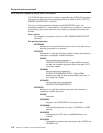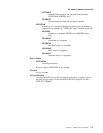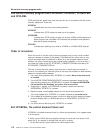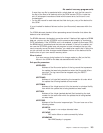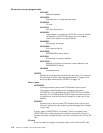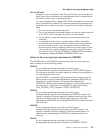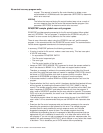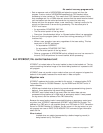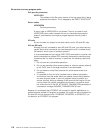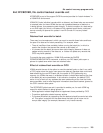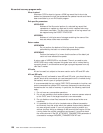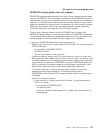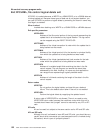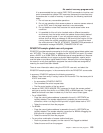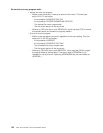Exit-specific parameters
UEPFLOGR
The address of the file control portion of the log record that is being
presented for backout. This is mapped by the DSECT DFHFCLGD.
Return codes
UERCNORM
Continue processing.
A return code of UERCPURG is not allowed. There is no need to set a
UERCPURG return code, because this exit is invoked during syncpoint
phase 2, and therefore cannot get a purged response from any calls it
makes.
XPI calls
All can be used, but subject to the same caution as for API and SPI calls.
API and SPI calls
Although this exit is allowed to issue API and SPI calls, you should be very
careful about which commands you use because the exit is invoked during
file backout, which is part of syncpoint phase 2.
It is recommended that you restrict EXEC CICS commands to inquiries, and
avoid commands that update CICS resources, because the resources may
themselves be in a state of recovery. In particular, the following restrictions
apply:
1. Do not issue any recoverable operations.
2. Do not use operations that access systems or resource owners external
to this CICS, even if the target resource is non-recoverable.
3. Do not disable or close files, because this could cause further error
conditions.
4. It is possible for this exit to be invoked under a different transaction
environment from that under which the updates that are being backed
out were originally made. If your exit program wants to perform any
actions (such as writing a message to the terminal) that require it to be
running under the original transaction environment, it must first check
the value returned in the RE_ATTACHED_TRANSACTION parameter of
a transaction manager INQUIRE_TRANSACTION XPI call.
Because it is anticipated that XFCBOUT will be used for specific applications, no
general-purpose sample exit program is provided. You could use any of samples for
the other file control recovery exits—DFH$FCBF, DFH$FCBV, or DFH$FCLD—as
the basis for an XFCBOUT exit program.
file control recovery program exits
118
CICS TS for OS/390: CICS Customization Guide



